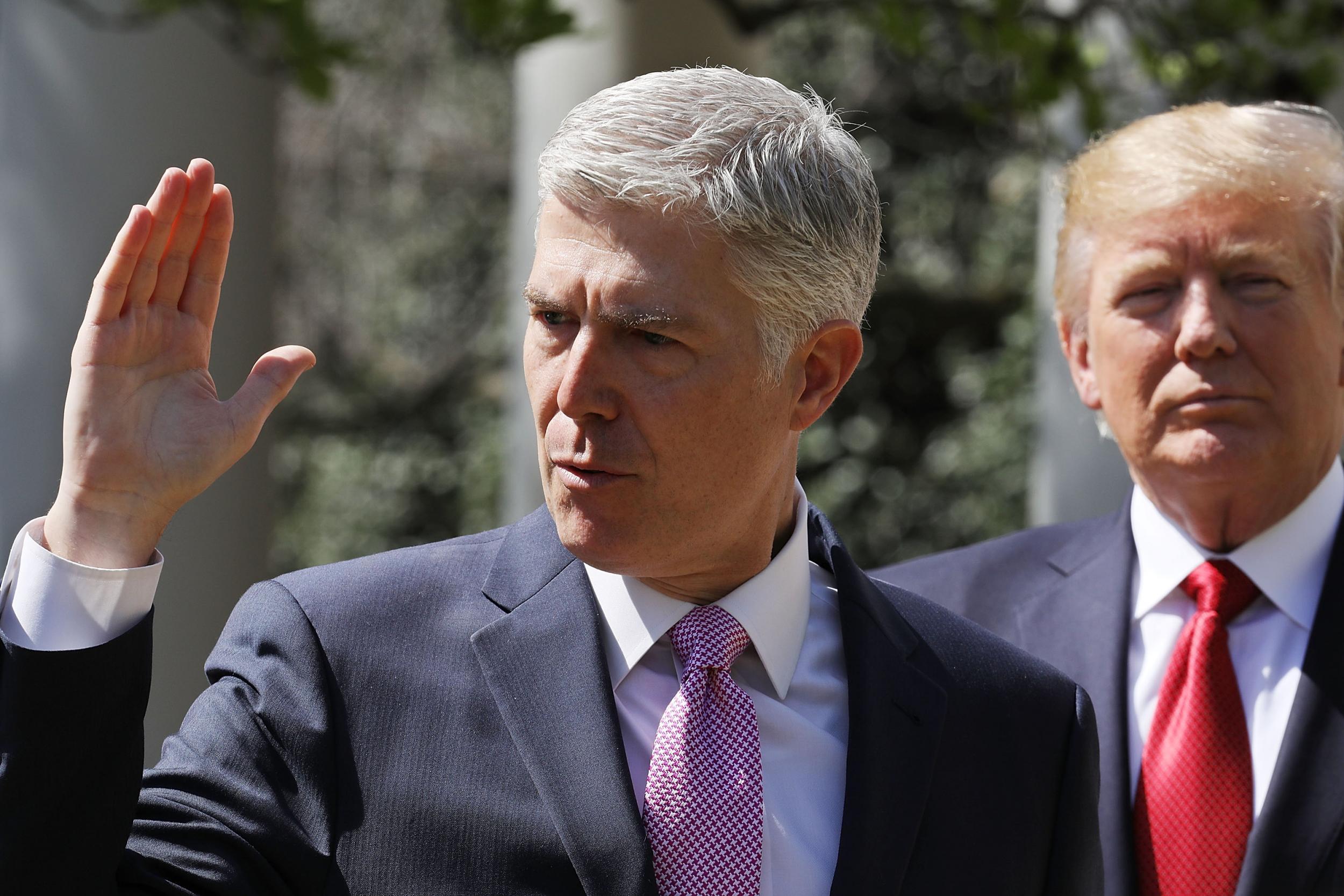Neil Gorsuch to take on religious liberty case in first test as Supreme Court justice
Mr Gorsuch will rule on whether churches can receive state government funding

Your support helps us to tell the story
From reproductive rights to climate change to Big Tech, The Independent is on the ground when the story is developing. Whether it's investigating the financials of Elon Musk's pro-Trump PAC or producing our latest documentary, 'The A Word', which shines a light on the American women fighting for reproductive rights, we know how important it is to parse out the facts from the messaging.
At such a critical moment in US history, we need reporters on the ground. Your donation allows us to keep sending journalists to speak to both sides of the story.
The Independent is trusted by Americans across the entire political spectrum. And unlike many other quality news outlets, we choose not to lock Americans out of our reporting and analysis with paywalls. We believe quality journalism should be available to everyone, paid for by those who can afford it.
Your support makes all the difference.Neil Gorsuch will don his black robes for the first time this week, in the first test for Donald Trump’s Supreme Court pick.
Headlining the justice’s schedule is the contentious religious liberty case Trinity Lutheran v Comer. The case considers whether churches should be allowed to receive money directly from state governments. It provides an interesting test for Mr Gorsuch, who is seen as a strong supporter of religious liberty.
The case originated with Trinity Lutheran Church in Columbia, Missouri, which operates a pre-school in its facility. The church applied for a state grant that helps fund playground restoration with used tires.
The state’s Department of Natural Resources rejected the church’s application, arguing that funding the project would violate the state constitution. Missouri is one of about three-dozen states with a constitution that explicitly prohibits the use of public funds to aid religious institutions.
The church argues the state has infringed on their constitutionally protected free exercise of religion by denying their application. The state says they are upholding state policy on the separation between church and state.
“Trinity Lutheran remains free, without any public subsidy, to worship, teach, pray, and practise any other aspect of its faith however it wishes,” the Department of Natural Resources wrote in a court brief. “The State merely declines to offer financial support.”
Mr Gorsuch’s ruling in this case will be one of his first as a Supreme Court justice, but one of many on the subject of religious liberty. In his previous role as judge in the US Court of Appeals for the 10th Circuit, Mr Gorsuch tended to rule in favour of broad religious freedoms.
In Hobby Lobby Stores, Inc v Sebelius, Mr Gorsuch found that business owners with strongly-held religious beliefs are not required to provide insurance coverage for their employees’ contraceptives. The Supreme Court later vindicated this decision.
In Yellowbear v Lambert, Mr Gorsuch ruled to allow a Native American prisoner use of the facility’s sweat lodge for religious purposes. In three different cases, he argued to allow religious expression in public places - including the display of the Ten Commandments in a public park.
Mr Trump hinted throughout his campaign that he would nominate justices to rule in favour of religious plaintiffs. In one instance, Mr Trump claimed his nominees would “automatically” overturn Roe v Wade. The Trinity case will be a test for religious conservatives of whether Mr Trump made the right pick.
Mr Gorsuch and his fellow justices will hear two weeks of arguments on the Trinity in the last stretch of their term set to conclude in June.
Join our commenting forum
Join thought-provoking conversations, follow other Independent readers and see their replies
Comments